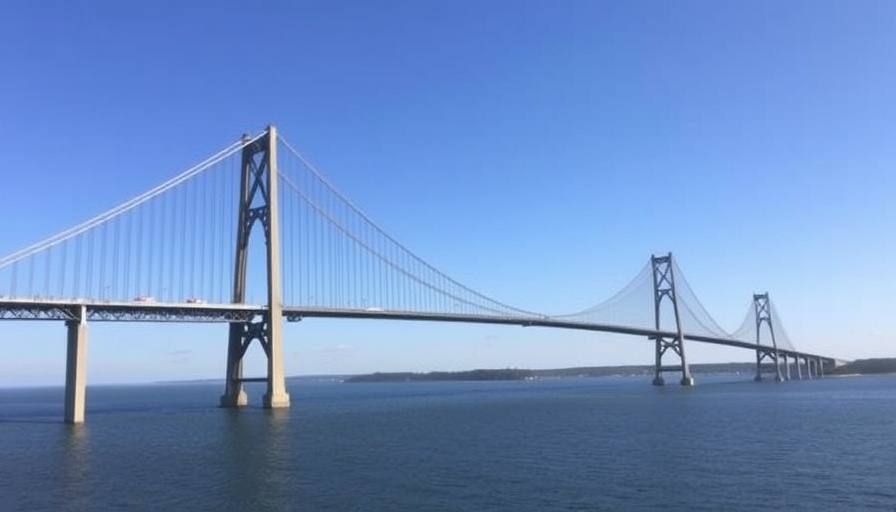
Unpacking MassDOT's $1.1 Billion Investment in Cape Cod
This summer, the Massachusetts Department of Transportation (MassDOT) approved an exciting $1.1 billion initiative aimed at replacing and rehabilitating key bridges on Cape Cod. The approval marks a significant step forward not merely for regional infrastructure but for innovative construction practices that will shape the future of civil engineering in the area. This ambitious plan isn’t just about fixing bridges; it’s a strategic move towards enhancing the safety, accessibility, and environmental sustainability of a region that draws millions each year.
Connecting People and Places: The Importance of Bridge Rehabilitation
Bridges are the unsung heroes of infrastructure, silently supporting our daily commutes and the transport of goods. The Cape Cod bridges, particularly the Sagamore and Bourne bridges, serve as vital arteries for traffic flow. Their current condition raises significant safety concerns, as aging infrastructure can lead to potential hazards for motorists and pedestrians alike. With this new funding, the project aims to not only rehabilitate these crucial structures but also utilize cutting-edge technology and sustainable building practices to ensure longevity and efficiency.
Why This Matters for Commercial Construction Clients
For clients of commercial construction companies, understanding the implications of such large-scale projects is paramount. The $1.1 billion infusion aims to create job opportunities and stimulate the economy, resulting in heightened demand for construction services across various sectors. Moreover, this initiative epitomizes the shift towards quality construction practices that prioritize durability and environmental impact. As construction firms often juggle project efficiency, cost management, and quality outcomes, these developments highlight a robust model for future endeavors.
The Role of Technology in Bridge Construction
In our age of rapid technological advancement, this bridge replacement initiative also opens doors for the integration of modern construction technologies that could drastically improve project outcomes. From advanced structural monitoring systems to the incorporation of sustainable materials like recycled concrete, this project underscores a commitment to innovation. These technologies not only streamline construction processes but also enhance the durability of the infrastructure—benefits that are increasingly vital as we grapple with the implications of climate change.
Looking Ahead: Future Trends in Infrastructure Development
The Cape Cod bridge replacement program represents more than just a local infrastructure project; it signals emerging trends that could shape the future of engineering and construction. As governmental bodies allocate more resources to replace aging infrastructure throughout the country, we can anticipate a shift in focus towards transparency, sustainability, and the digital revolution within construction practices. Recognizing these trends will enable companies to align their strategies with future demands and technological advancements.
In closing, the MassDOT’s monumental investment in bridge infrastructure is not just a remedy for aging structures but a blueprint for the future of construction. Companies engaged in commercial construction ought to pay attention to these developments for they herald changes that can redefine approaches to project management and execution.
 Add Row
Add Row  Add
Add 




Write A Comment